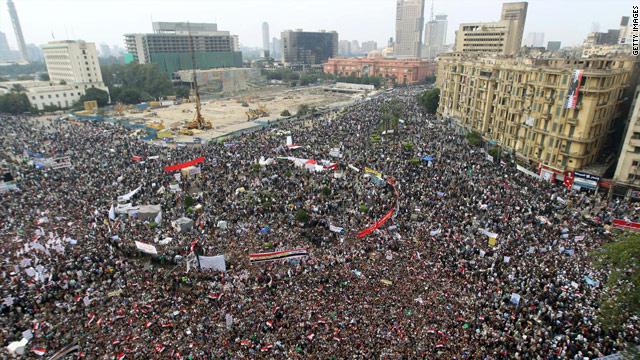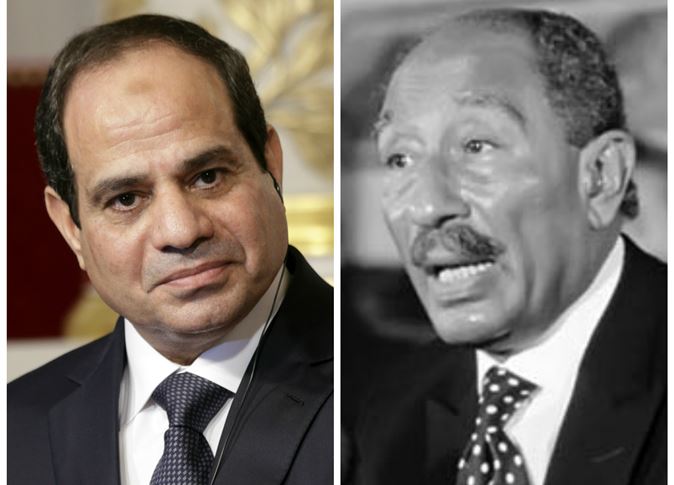Sadat inherited a heavy legacy from Nasser in 1970, including the 1967 defeat that led to the occupation of Sinai and an economic recession that frustrated the people, intellectuals and non-intellectuals. And it was not clear how the country would get out of this political and economic crisis.
Although Sadat did not have the leadership qualities that Nasser did, he was shrewd and cunning like no other president before or after him. His position regarding Egyptian intellectuals was different from Nasser's and Hosni Mubarak’s. None of them was an intellectual as such, but Nasser respected intellectuals more than the other two presidents. Although he was impatient to ideologies, he did not underestimate ideologists, for he knew how ideologies could form policies and the awareness of the people.
Nasser listened and contemplated a lot, but never paid much attention to small details, while Sadat prefered to sit with friends rather than talk with intellectuals. And Mubarak did not like to talk with intellectuals either because he had a hard time understanding what they said.
Among the heavy legacy that Sadat inherited were leftist intellectuals who believed the state should play a larger role in the economy, nationalists who were against Israel and the American domination and others who were in favor of Arab nationalism. So what did Sadat do to those when he decided to take a different path from Nasser’s in all these issues?
Although he often said that he was taking the same line as Nasser, Sadat did exactly the opposite, especially after the Egyptian army succeeded in crossing the Suez Canal in October 1973.
There was this joke at that time that Sadat was drawing the same line as Nasser but erased it with as he followed. For he did indeed deviate from the main four issues in Nasser’s line regarding the economic policy, the policies towards the Arabs, the relation with Israel and the relation with the United States.
Contrary to Nasser, Sadat adopted an open door policy and pulled the state out of the economy, placed Egypt’s interests before Arab nationalism, made peace with Israel before the Palestinians could have their lost rights back, and was totally dependent on the United States.
It was only natural for this sharp deviation to be resented by the majority of Egyptian intellectuals who believed in socialism and Arab nationalism and who were against peace with Israel and dependency on the United States.
Sadat dealt with those intellectuals aggressively and shrewdly. He described them with inappropriate expressions that neither Nasser nor Mubarak ever used. He called a certain prominent intellectual insane, said about another that he threw him in jail like a dog, described others as obnoxious and told them that democracy has fangs and that he would squash them all.
The crossing of the Suez Canal in 1973 did not appease the Egyptian intellectuals for long, for it soon became clear that the military gain was followed by serious political concessions, starting with the disengagement agreements to the reception of President Nixon as a hero, the successive attacks on the Arab States that he called dwarfs, the uncontrolled open door policy that did not protect Egyptian industries, and the signing of the peace treaty with Israel in 1979.
The Egyptian intellectuals seemed like they were struck by lightning and did not know what to do or where to go. Some of them went to Iraq, where they were welcomed by Saddam Hussein, some went to Kuwait, where they taught at universities, some went to Paris, where they were welcomed by the French socialists, and some went to London, where they worked for Gulf newspapers.
Yet travel was not an alternative for others who were too old or who insisted on continuing their struggle at home, whatever the consequences. Among them was Naguib Mahfouz, who had to use symbolism in his stories to the extent that they were almost turned into riddles, Yusuf Idris, who left literature and just wrote political articles because he felt he could not write stories and novels if his very house was burning, and Gamal Hamdan, who locked himself at home.
But others like Fathi Radwan and Helmy Murad wrote fiery articles that criticized the government policies in those four issues, while yet others like Adel Hussein and Hassan Hanafi chose to adopt the Islamic discourse and alter it into a leftist interpretation to criticise the government.
Sadat was only supported by intellectuals who shared his personal inclinations, such as Rashad Rushdie, who was said to have helped him write his autobiography “In Search of Identity,” Lotfy al-Kholy, an old leftist who saw in Sadat’s policies a wisdom that others did not see and praised him for what he called his “Political School,” and Sheikh Metwally al-Shaarawy, the Islamic preacher who interpreted religion in a way that was not inconsistent with the wishes of the ruler, even if it fomented sectarian strife.
Sadat's regime could have continued with the support of this type of intellectuals without fearing any danger from the rest. But during a visit to the United States in 1981, he began to feel that the American administration would stop supporting him and might even work on toppling him.
And so he carried out unprecedented mass arrests of left-wing, right-wing, Muslim, Coptic, men and women intellectuals when he came back from that visit. Yet those famous September 1981 arrests did not last more than a few weeks because he was assassinated on 6 October 1981 and they were all released.
The new president received them in the presidential palace after their release, but the plight of the Egyptian intellectuals returned again a few months after he assumed office.
Edited translation from Al-Masry Al-Youm




